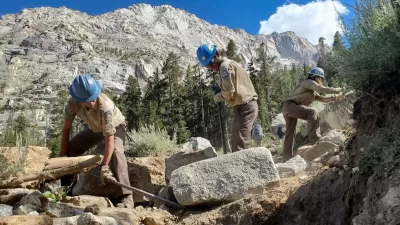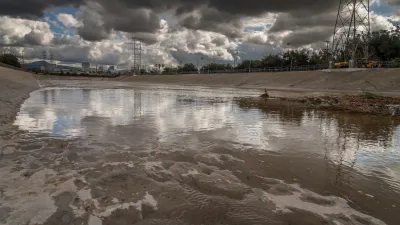The latest edition of the “Climate Change Indicators in the United States” report highlights the severe and widespread impacts of climate change on health and the environment, emphasizing the urgent need for action to mitigate these effects.

The Environmental Protection Agency (EPA) has released the Fifth Edition of the “Climate Change Indicators in the United States” report, presenting new data that underscores the pervasive effects of climate change on health and the environment. The report, which now includes indicators such as Marine Heat Waves and Heat-Related Workplace Deaths, illustrates how phenomena like extreme heat, flooding, and wildfires are increasingly frequent and severe, causing substantial harm to public health, livelihoods, and property. EPA Administrator Michael S. Regan emphasized the report’s role in tracking climate change's impacts, aiding informed efforts to mitigate the crisis.
The report compiles data from more than 50 contributors, offering evidence of climate change’s growing impact on ecosystems and society. Notable findings include the increase in global and U.S. temperatures, more frequent and prolonged heat waves in cities, rising sea surface temperatures, and the displacement of marine species. Additionally, tidal flooding, wildfires, and the lengthening of the growing season have become more pronounced. These indicators collectively highlight the urgent need for comprehensive climate action to protect vulnerable populations and build resilient infrastructure.
Further, the report addresses the significant reduction in Arctic sea ice and the shortening of the snowpack season, both of which have critical implications for global climate patterns. The EPA's ongoing efforts to document these changes are crucial for understanding the real-time effects of climate change and developing effective strategies to combat its adverse outcomes. The comprehensive data presented aims to support policy-making and public awareness, stressing the importance of immediate and sustained efforts to address climate change.

Trump Administration Could Effectively End Housing Voucher Program
Federal officials are eyeing major cuts to the Section 8 program that helps millions of low-income households pay rent.

Planetizen Federal Action Tracker
A weekly monitor of how Trump’s orders and actions are impacting planners and planning in America.

Canada vs. Kamala: Whose Liberal Housing Platform Comes Out on Top?
As Canada votes for a new Prime Minister, what can America learn from the leading liberal candidate of its neighbor to the north?

Washington State’s Parking Reform Law Could Unlock ‘Countless’ Acres for New Housing
A law that limits how much parking cities can require for residential amd commercial developments could lead to a construction boom.

Wildlife Rebounds After the Eaton Fire
Following the devastation of the Eaton Fire, the return of wildlife and the regrowth of native plants are offering powerful signs of resilience and renewal.

LA to Replace Inglewood Light Rail Project With Bus Shuttles
LA Metro says the change is in response to community engagement and that the new design will be ready before the 2028 Olympic Games.
Urban Design for Planners 1: Software Tools
This six-course series explores essential urban design concepts using open source software and equips planners with the tools they need to participate fully in the urban design process.
Planning for Universal Design
Learn the tools for implementing Universal Design in planning regulations.
Central Transportation Planning Staff/Boston Region MPO
Heyer Gruel & Associates PA
Institute for Housing and Urban Development Studies (IHS)
City of Grandview
Harvard GSD Executive Education
Regional Transportation Commission of Southern Nevada
Toledo-Lucas County Plan Commissions





























